Category: Anecdotes
Posted by Dr. El - October 14, 2015 - Anecdotes, For Fun, McKnight's Long-Term Care News, Personal Reflections, Role of psychologists
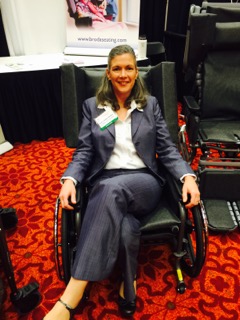
Here’s my latest article on McKnight’s Long-Term Care News:

“The Adventures of
The Geropsychologist!”
Starring Dr. El as
The Geropsychologist!
There have been thousands of movies and TV shows about the exciting work of cops, lawyers, and hospitals, but long-term care? Fuhgeddaboutit!
Here, Dr. El aims to correct that oversight with a show that reveals the versatility and pragmatism of a nursing home psychologist willing to do what it takes to meet the needs of her residents.
Act 1, Scene 1
In today’s episode, Dr. El walks into 85-year old resident Frank Corolla’s nursing home room. His bed is neatly made and the curtain is drawn between his bed and his neighbor’s in their semi-private room. Mr. Corolla is sitting in his chair in his pajamas and bathrobe, listening to the radio.
Dr. El (in a loud voice): Hey, Mr. Corolla! It’s Dr. El. How are you doing today?
Mr. Corolla (looking sad): Not good.
Dr. El (sitting on the edge of the bed): What’s the matter?
Mr. Corolla: My eyes are hurting me so bad I was crying today.
Dr. El: Did that help?
Mr. Corolla: No.
Dr. El: I’m sorry to hear that. I’ll talk to the nurse. I’ll be right back.
Act 1, Scene 2
Dr. El appears at the nursing station and waits while the nurse finishes her phone call. The nurse hangs up.
Nurse: How are you, Dr. El? How can I help you?
Dr. El: Well, I’m good, thanks, but Mr. Corolla eyes are hurting him so badly he was crying today. I wrote a note for the doctor last week but I don’t see any follow up. Do you know what’s happening with that?
Nurse (looking in the computer): I don’t see anything from the doctor. I’ll call the nurse practitioner.
Dr. El: Thanks!
Act 1, Scene 3
Dr. El runs into the nurse in the stairwell.
Dr. El: Were you able to reach the nurse practitioner?
Nurse: Yes. She put in an order to see the ophthalmologist.
Dr. El: Awesome!
[Canned applause]
Act 2, Scene 1
Dr. El walks into Ms. Johnson’s room and finds her frantically rummaging through her closet with one hand. With the other, she holds on to the wall. She looks like she’s about to fall.
Dr. El: Ms. Johnson! Are you OK? What are you doing?
Ms. Johnson (looking up with tears in her eyes): I was looking for a shirt I wanted to wear and look how they do my things! All crammed in here like they was nothing! They’s something to me. They’s all I got.
For the entire article, visit:
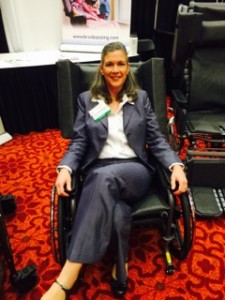
Posted by Dr. El - August 29, 2015 - Anecdotes, Technology

Mr. Johnson was in his 90s and had lost his vision many years ago. His great joy in life now was listening to the radio.
When I first came to see him, he had many different types of radios in his room. There were several radio alarm clocks and complicated boom boxes with too many buttons and functions he didn’t need. There was a transistor radio that required expensive batteries and somebody to run to the store to buy them.
All of these devices had crashed to the floor more than once during Mr. Johnson’s attempts to use them. None of them worked.
In long-term care, objects such as radios, telephones, and remote controls are always falling off tray tables and nightstands. I’ve often wished for rubber devices, preferably with a boomerang function that brings them back to the user immediately.
Seeking a replacement for Mr. Johnson, I found a simple, rugged radio that’s perfect for people who are visually impaired and need a fall-proof device. It’s a bit heavy at 6 pounds 9.8 ounces, so take that into consideration, but it’s impact-resistant, water-resistant, has five easy-touch AM/FM preset buttons, no extraneous functions, and has a power cord so no batteries are needed.
Mr. Johnson bought his through Amazon with my help (“Where is this store exactly?” “It’s on the computer, Mr. Johnson.” “But where is it?” “It’s hard to explain. But your radio will get here very quickly.”)
The radio doesn’t have a boomerang function, but at least if it falls, Mr. Johnson can pick it up by its handle and use it again.

Sangean Lunchbox Radio
Posted by Dr. El - April 10, 2015 - Anecdotes, Communication
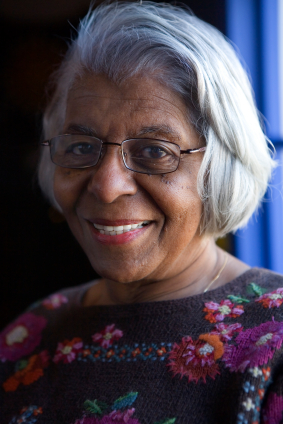
This Washington Post article by Louise Aronson, MD perfectly describes the failures of our current medical system to address the problems that affect older patients.
The clinic was in a dilapidated old building, yet the entryway retained a worn grandeur. Tapering, semicircular walls extended like welcoming arms, and a half-moon of sidewalk stretched to the quiet side street.
That’s where I first saw her, standing at the curb with her cane propped on her walker, squinting toward the nearby boulevard. The woman was clearly well into her 80s, with a confident demeanor and with clothes and hair that revealed an attention to appearance. She had a cellphone in one hand and seemed to be waiting for a ride.
I had been heading into the clinic for a 4:30 p.m. appointment, and when I came back out, night had fallen. But for her tan winter coat and bright scarf, I might have missed her leaning against the clinic’s curved wall. She still held the cellphone, but now her shoulders were slumped and her hair disheveled by the cold evening breeze.
I hesitated. On one side of town, my elderly mother needed computer help. On the other, our dog needed a walk, dinner had to be cooked and several hours of patient notes and work e-mails required my attention.
I asked this woman whether she was okay. She looked at the ground, lips pursed, and shook her head. “No,” she said. “My ride didn’t come, and I have this thing on my phone that calls a cab, but it sends them to my apartment. I don’t know how to get them here, and I can’t reach my friend.”
She showed me her phone. The battery was now dead. I called for a taxi with my phone. She was tired and cold by then and suddenly seemed frail.
We chatted as we waited. She owned a small business downtown — or she had. She was in the process of retiring, having been unable to do much work in recent months because of illnesses. She’d been hospitalized twice in the past year, she said. Nothing catastrophic, yet somehow after the second stay things had never quite gotten back to normal.
The geriatrician in me noted that she had some trouble hearing, even more difficulty seeing, arthritic fingers and a gait that favored her right side. But her brain was sharp, and she had a terrific sense of humor.
For the rest of the article, visit:
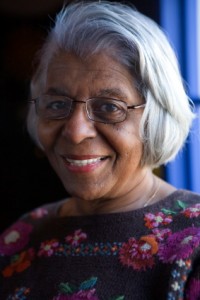
Posted by Dr. El - October 10, 2014 - Anecdotes, Common Nursing Home Problems and How Psychologists Can Solve Them, Role of psychologists

“I’M THE NEW PSYCHOLOGIST,” I screamed. “DO YOU HAVE A HEARING AID?”
“What?” Ms. Oakes replied.
The rest of our first session went downhill from there. I stopped at the nursing station on the way off the unit. “She never wears her hearing aid,” the nurse reported. “I’ve got it right here but she refuses.”
The following Thursday I approached Ms. Oakes with the hearing aid box in my hand. “I’M GOING TO PUT THIS IN, OKAY?” I pointed to the box, to my ear and then hers.
“All right.” She allowed me to fumble with the device and stick it in her ear.
“Can You Hear Me?”
“You want to know if I can hear you? Yes.” She looked worried. “I can’t find my glasses.”
“When Was The Last Time You Had Them?” I asked.
“When the girl took me for a shower this morning.” A pair of unmarked glasses in the shower room could disappear forever.
“I’m Going To Look For Them. I’ll Be Right Back.”
I returned a couple of minutes later with the glasses in my hand.
Ms. Oakes looked at me with amazement. “Lord a mercy, I didn’t ever think I’d see them again!”
I cleaned them off and slid them into place. She beamed.

Posted by Dr. El - May 22, 2014 - Anecdotes, Books/media of note, Inspiration, Something Good About Nursing Homes
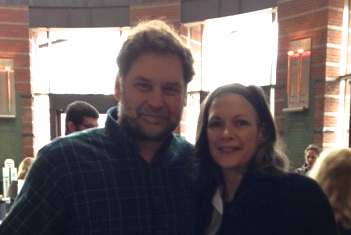
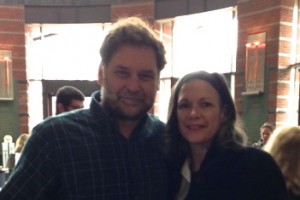
Dr. El and Dr. Bill Thomas
Last month I had the chance to attend the launch of Dr. Bill Thomas’ new book, Second Wind. Bill Thomas, founder of the Eden Alternative and creator of The Green House, has written many books about changing the culture of care in nursing homes. In his new book, he shifts his focus to helping readers understand the background of our youth-obsessed culture and to encouraging a more positive outlook on aging.
The Second Wind event was a combination of music, drama, education and entertainment that left attendees feeling hopeful, energized, and positive. It was exciting to meet so many like-minded people engaged in improving long-term care. LTC often gets bad press, but there are many, many people out there striving to make things better for our elders.
One of these people is Dan Cohen, MSW, Executive Director of Music & Memory, which is a program designed to bring individualized music via iPods to residents with dementia. I wrote here about the astounding success of this program in engaging elders who have previously seemed lost within their dementia. I met Dan Cohen once before and was pleased to see him again at the Second Wind event, where we took the selfie below.

Dr. El and Dan Cohen, MSW of Music & Memory
Posted by Dr. El - January 2, 2014 - Anecdotes, Customer service, Role of psychologists
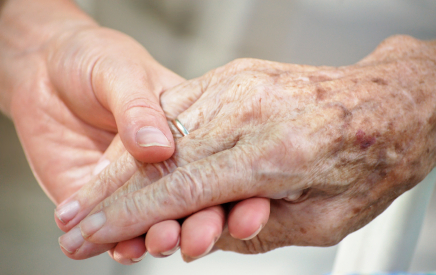
Here’s my latest article on McKnight’s Long-Term Care News:

Many of us in long-term care think of our jobs as a calling. We handle the day-to-day tasks and the business as usual but also get a lot of energy and joy out of taking our work one step further. Here are some actions I’ve taken that have enriched my patients and my role as a psychologist.
1. Set up Facebook accounts so residents can stay connected with their friends and family members.
2. Searched through their charts to find out the outcome of a medical consult.
3. Followed up with the nurse if the recommended course of action wasn’t pursued.
4. Cleaned out messy closets and drawers to give the resident some sense of control.
5. Searched for missing items (and found 90% of them!).
6. Attended one patient funeral early on in my nursing home career, where I sobbed from the moment I entered the room until the moment I left. Never again have I gone.
7. Tracked down and reunited missing family members.
For the entire article, visit:
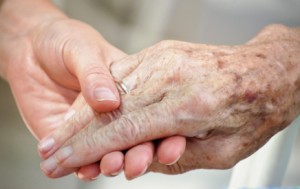
Posted by Dr. El - June 5, 2013 - Anecdotes, Boomers, Communication, Engaging with families, For Fun
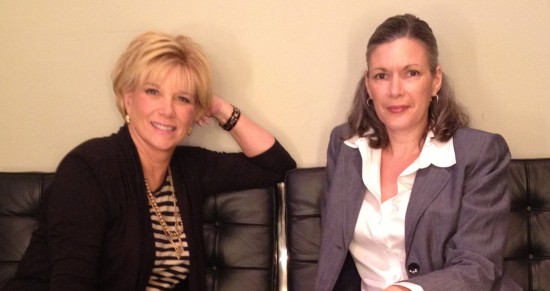
Award-winning journalist and author Joan Lunden takes time from her busy schedule to talk with Dr. El of My Better Nursing Home about her experiences caring for her 94-year old mother and speaking with other family caregivers around the country.
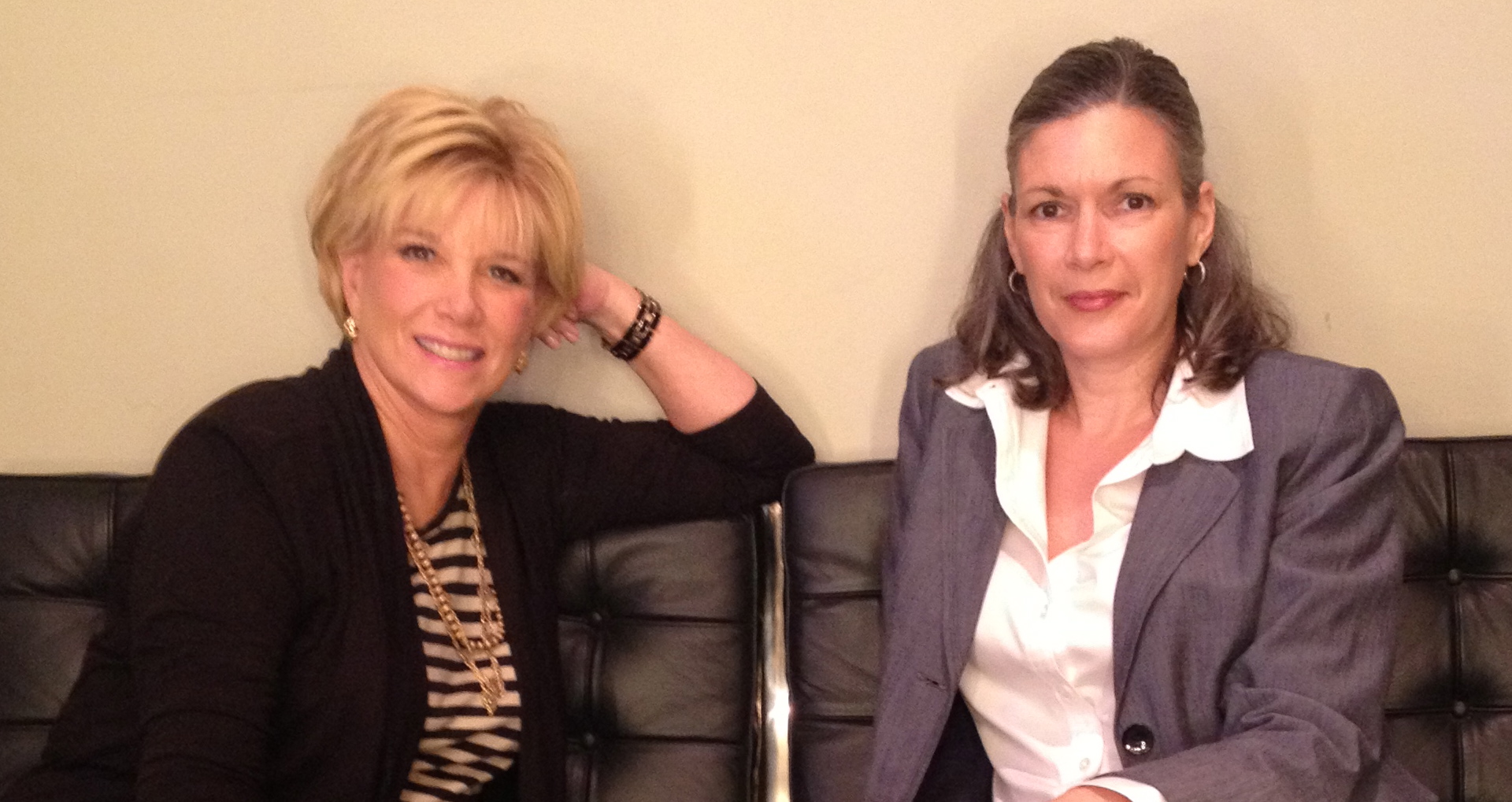
Dr. El: Joan, you’re part of what’s called “The Sandwich Generation,” taking care of your young children and an aging parent while maintaining a high-profile career. How do you manage this?
JL: After working on Good Morning America for twenty years where you never know what part of the world you’re going to be in while raising 3 daughters, I don’t think anything could get any harder than that. But I think having kids the second time around, you have to decide what you’re like and are you physically and psychologically up to the task. I wasn’t even daunted about having a second round of children. But no matter what we do as women, running businesses and keeping hectic schedules, the day you start taking care of a parent, that can really bring you to your knees….When you get to that life transition when you become the parent to your parent, it doesn’t feel natural because you’ve spent a lifetime learning to be a child to them and they have always been in that parental position. All of the sudden to have that role reversed is very disconcerting to a lot of people. It’s a hard one to accept. It often feels uncomfortable to tell your parent what they can do or can’t do.
Dr. El: The caretaking you’re talking about can be quite stressful and I saw on your website you have a place called Camp Reveille. Can you tell me about that?
JL: I got remarried and I married a guy who runs summer camps for children. I’m no dummy, I married a guy with a 50-foot climbing wall and 17 tennis courts! I started spending my summers up in Maine with him and at the end of every summer I would find that I was my least stressed, my absolute most fit, I was one with nature again….One day we were walking by the lake and I said to my husband, “I’m always talking to these women’s groups all over the nation. I should have a summer camp for women.” And my husband said, “The facility is yours. Do it.” And the next summer we ran our first Camp Reveille, which is a 3-night, 4-day stay because women don’t have wives and can only deal with being away for that amount of time. That’s long enough to unhook from electronics, unwind from the hectic pace of life…and connect with the women….The emotional strength that comes from getting a group of 150 women together is really powerful. The sharing of stories, the understanding that you’re going to get to the other side [of what you’re going through], learning from each other, motivating each other in a safe environment. They go back not just refreshed, but I feel a lot of them experience a transformation and are able to let go of a lot of baggage they didn’t even know they were carrying around.
Dr. El: Is the camp mostly for family caregivers or is it also for professional caregivers?
JL: It’s for women in general. About 75% of the women identified themselves [in their pre-camp questionnaires] as caregivers. Several women had just lost their husbands and came to the camp with their hospice workers. I never have seen such a transformation as these two women [a widow and her hospice worker] who came in and when they left on the last day I almost didn’t recognize them because they had let go of so much stress and heartache that they were like two giddy little girls, laughing.
Dr. El: For most families, one of the stresses of eldercare involves the financial challenges, including medication costs. What are your thoughts on how to manage this?
JL: I do a lot of health campaigns and I’m a doctor’s kid who always thought I’d grow up to be a doctor until I worked in a hospital and found out that scalpels were not happening in my career. But truly the dissemination of health information and the ability to help people make better decisions is at my core. I’m working right now with Walgreens who has really made great strides in trying to figure out ways to bring prescription costs down. One of the ways is Medicare Part D. The real area that it seems people can get some savings is that a lot of these programs that you have to sign up in when you sign up for Medicare Part D are now affiliating themselves with pharmaceutical chains. When they do that, you need to review your plan and ask if there is a preferred pharmacy network so you can get the lowest copays.
Dr. El: This is an important issue because sometimes people will skip their medication because they can’t afford it and this leads to a whole host of problems and readmissions to the hospital and nursing home.
JL: That’s what this Walgreens survey found, that one in five people were skipping doses to make a prescription last longer or not getting them refilled. And one in four said that when a doctor wrote a prescription for them, they never got it filled. Nonadherence to medication therapy is estimated to cost the healthcare system 300 billion dollars a year…. I don’t know how we’re going to reform healthcare in this country unless we do it grassroots, person by person, just like we got people to stop smoking. It’s a huge educational process to help seniors and caregivers understand how they can get the most cost savings from these plans that they belong to.

Dr. El: Let’s talk a little bit about your personal situation. Your mother is in a care facility right now. Can you tell me about how you chose that place and what it’s like there?
JL: I had kept my mom and my brother in a condo together and had a person come in to help them. My brother had Type II Diabetes and he had all the complications one could have with it and he was unable to keep a job for several decades, so I paid for them. The condo worked pretty well until my brother died about 6 or 7 years ago and it became abundantly clear to me that there was no way my mother at 88 years old could continue to live in that condo by herself. And that is one of the toughest things, when I talk to people, making that decision that their parents need to move out of their house or apartment and into a care facility. And I think that part of the reason is that we’re living with this myth that the minute you leave your house and move into a nursing home, you die, and that’s absolutely not the way it works, at least from what I’ve seen.
Dr. El: I work in nursing homes and it’s not what I’ve seen either.
JL: When you leave a place, hopefully you make that decision before it’s a crisis, but most people wait until somebody’s had a fall or has an accident in the car or wait for the crisis call. Once you move your loved one into a facility, I’ve found they’re often better off instead of being by themselves in their house. I think if I’d have gotten my mother into senior living far sooner, she would have been much better off today because she would have had conversations with people. She became a recluse at home. When I finally moved my mother into a facility, I moved her into a place that would have been great for my mother ten years ago. I moved the mother that was in my head. In reality, the beautiful dining room scared her because she didn’t recognize people, she was alone in her apartment when she started sundowning….The place terrified her. I had chosen the completely wrong facility.
Dr. El: And how would you know because you’d never done this before.
JL: And not only that, I hadn’t been living with her. I was typical of many families in that I lived far away and when people come into town for a visit, everyone puts on their best face — there’s no problem, we’re doing fine. And you don’t realize that they haven’t opened the mail for the last two years. In retrospect, there were warning signs that my mother needed more help. I came back to Sacramento, California and moved her to the next place, but she kept falling. Her neurologist recommended a small care facility in a house setting with five residents. That was the best advice I ever got. She now lives in a ranch-style house that’s not at all institutional. She gets out of her room every day, they play bingo — she’s the reigning champ, she reads the newspaper to the other residents in their 90s and they do chair exercises. It’s fastidiously clean. It was the best move I ever made.
Dr. El: It’s so amazing when you find the right place because it changes your relationship from the worried, intense caregiving to I’m visiting my mom and we’re having a relationship like we used to have.
JL: Yes. Instead of spending the entire time in town figuring out what’s wrong, now I can go in — and my mom can have good days and bad days, she does have dementia — but I made up these books with photographs and she can sit and reconnect. The man who runs the place gave me the advice that the more you can engage with the older person in the life they knew, rather than trying to engage them in your life, the more comfortable they are and the better they begin to have a discussion with you. When I talk about what life was like when I was a little girl, my mother opens up like a flower.
Dr. El: You’re talking about flipping the roles of family members, and one of the chapters of my book, The Savvy Resident’s Guide, is for elders to help them see that they still have a role in parenting by helping their children adjust to the fact that they’re aging and dealing with end of life issues. Are there ways that your mom is still in the mom role with you?
JL: Not in any significant way other than that I still want her to like the way I dress, I dress for her when I go there. She still wants to feel the pride of a momma. They don’t want to know you won a certain award particularly, they want to know you’re happy. I’m in the child role in that I’m still trying to make sure that my momma is proud.
Dr. El: You speak with family caregivers all over the country. Is there anything you’d like to say to professional caregivers on behalf of the families?
JL: Thank you, thank you, thank you, thank you! I take my hat off to those people who work as caregivers. It is a testament to their compassion and their patience. I can go to sleep at night because I know the heart of these women who are taking care of my mom all day long… I thank God that we have those people in our society that are willing to dedicate themselves truly to someone else’s minute-by-minute happiness.
Posted by Dr. El - May 30, 2013 - Anecdotes, For Fun, Inspiration, Personal Reflections, Something Good About Nursing Homes
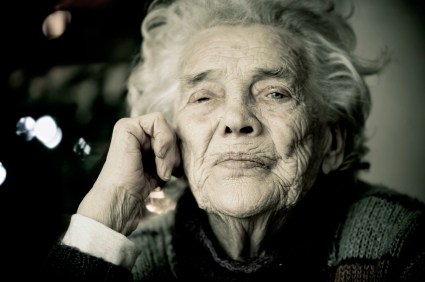
Here’s my latest article at McKnight’s Long-Term Care News:

Someone posted a story I Liked on Facebook about an 85-year old woman who graduated from college and already had a job offer. “She’s my new hero!” a Friend commented. That got me thinking about all the resident heroes I meet at work every day. They’re the ones who help me along the journey to having the kind of life I can look back on without regrets when I’m in my nursing home room in my senior years.
Lesson No. 1: Chutzpah
Back when I first started in long-term care, I was called upon to work with many younger residents who were admitted to the facility as a result of unfortunate incidents that occurred while they were taking a walk on the wild side. Their still-wild ways weren’t going over so well in the nursing home, but I admired how they stood up for themselves and their rights.
“Everyone knows not to mess with me,” one young lady declared, “because if they do, I’ll have a hit put out on them.” Wow! Now that’s assertiveness! I thought to myself, as I worried about the nuances of phrasing a request to a coworker.
Yes, threatening to put out a hit on someone was on the extreme side of the assertiveness scale, but wasn’t it possible I was too far on the mild side? Those young residents helped me edge a notch or two closer to asking for a reasonable amount of what I want and need from others.
Lesson No. 2: Keep on keeping on
Nina and Roberta had a routine. In the mornings, they sat in the lobby and greeted all who entered the facility. At lunch, they went from table to table and wished everyone well before dining. In the afternoon, they visited the very ill and prayed with them before returning to the lobby to welcome the evening shift.
In a private discussion with Nina, she talked about her younger years when she preached with her sister on the streets of New York City. Nina is my role model because she lived her whole life doing what she loved, adjusting for changes along the way.
Lesson No. 3: Live for today
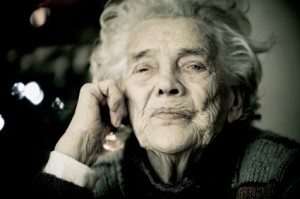
Posted by Dr. El - February 6, 2013 - Anecdotes, Personal Reflections


Over the years, I’ve spoken with hundreds and hundreds of people whose daily lives were interrupted by a health crisis that led them into long-term care. They’ve told me how challenging it can be and we’ve discussed the changes that have occurred and how to adapt to them. If they’re going back home, we talk about how to minimize the chances of another fall or how to make use of supports in the community. I understand it’s a stressful time and have a blog post that specifically addresses the stress of nursing home admission. I thought I “got” it.
Then last week I was called for jury duty, plucked out of my life in the middle of a hectic time. I’ve done it twice before, including a month of grand jury service, so it wasn’t that I was opposed to serving — it just wasn’t a good time. But since I’d already postponed once and I didn’t foresee a less hectic period in my life for, say, another 10 years, I showed up at the courthouse to await my fate. I was anxious, though, because I have my job to do and blog posts to write and then there’s the New York City school bus strike — another unpredictable, uncontrollable event taking me out of my routine for hours at a time.
I sat in the holding room until late in the morning before I was called for a medical malpractice trial. A group of us filed into the courtroom and the judge proudly announced that he runs the longest trials of anyone in the district and we could expect to be there for 2-3 weeks. (What!????) We broke for lunch and I rushed to run a job-related errand, making it back to the courthouse in the nick of time. The judge allowed those who thought they couldn’t provide 2-3 weeks of jury duty service to make their case. I waited on line for my chance to speak to him privately and watched him send potential jurors back to their seats, saying “That’s not an excuse” or “We can work with that. Sit down.” Nervously, I approached the bench with three reasons I couldn’t be out of my life for that length of time. I began with the school bus strike and the judge interrupted me. “Your first reason is good enough.” He sent me back to the jury pool where I sat for an hour and half before being given notice that I’d served my time and wouldn’t be called for another four years.
The next day I spoke with a man who’d been in the nursing home since before the holidays and was wondering when he’d be going home. He’d been referred for psychological services because he’d been irritable with the staff. I explained the discharge process as I have so often in the past, but this time I felt his anxiety in a whole new way. I’d only been called for jury duty and still I’d felt for a few days like my life was out of my control. This man had fallen, been taken to the hospital, and then to the nursing home for rehab. He’d missed Christmas, New Year’s, and his wife’s birthday, and was waiting on a host of other people to tell him when he could go back to his life. I was humbled. He was handling things so well.
Posted by Dr. El - November 7, 2012 - Anecdotes, For Fun
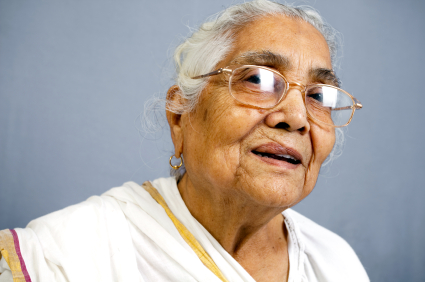
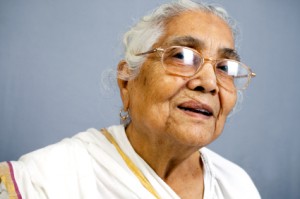
Mrs. Thomas was nervous on Monday, talking about the election and how the results would affect her and the rest of the country.
“I spoke to my sister and she decided to vote for him,” she told me. “I was so surprised. I’ve been voting the same way all my life and I’m not going to change now that I’m in my eighties. No!” She thumped her hand on her armrest. “I believe what I believe! And if my man wins tomorrow, I’m going to lock my wheelchair, pull up my walker, stand up and say, “Hallelujah!” She smiled at me. “And then I’m going to grab you, Doctor, and give you a big hug around the waist!”






















